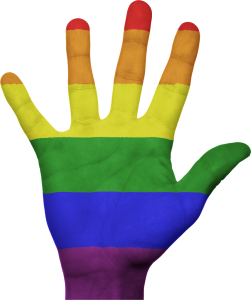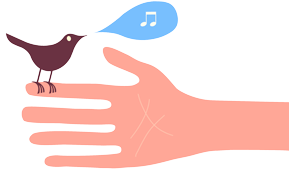The Minimum
 My practice has always had a particular focus on serving the lesbian, gay, bisexual, transgender, and queer (LGBTQ)1 communities.
My practice has always had a particular focus on serving the lesbian, gay, bisexual, transgender, and queer (LGBTQ)1 communities.
Sometimes, I work with clients on issues specifically related to being LGBTQ such as coming out or gender transition/affirmation or dealing with discrimination.
More frequently, I work with LGBTQ clients for whom being LGBTQ is not the reason for being in therapy. They just want a therapist who “gets it” and won’t judge them for being who they are. They want a therapist who will not pathologize them for being LGBTQ. They want to be able to mention their partner(s) in passing without worrying that it will be shocking to me. They want to be able to be themselves with me so they can work on the issues that are really bothering them.
How can you tell if a therapist will be helpful to you as a LGBTQ person? Following is the bare minimum I think you need for the therapy to be successful.
At a minimum, LGBTQ-friendly therapists are:
- Dedicated to helping you be proud of who you are. They know that “conversion therapy” doesn’t work and that it is destructive. While understanding that bigotry leads people to feel ashamed of their sexuality or gender identity, they help you to deal with the shame instead of pretending they can help you to be someone other than who you are. If a therapist tries to “help” you to change your sexual orientation or your gender identity, run — don’t walk — to find another therapist. A therapist who thinks your sexuality or gender identity needs to change will do you more harm than good.
- Aware that your sexuality and gender identity are not the cause of your psychological or relationship problems. They don’t think your depression is due to being gay. They don’t think that being transgender has made you delusional (nor do they think that being delusional has made you transgender).
- Committed to learning what they need to know. They recognize if their experience with LGBTQ people is limited. They take responsibility for doing their own research to figure out how to be helpful to you. While they may appreciate information you have to offer, they do not think it is your job to educate them.
- Willing to acknowledge and apologize for their errors and limitations. If they make a mistake or inadvertently offend you, they don’t get defensive. They say, “I’m sorry,” endeavor to not repeat the error, and give some thought to their own biases that caused them to make the mistake.
- Sensitive to the need for confidentiality. They understand that some people can lose their jobs or families if their sexuality or gender identity becomes public. They talk with clients about what information is OK to reveal to an insurance company or to any person with whom they are coordinating care. They are extra careful when leaving messages or sending correspondence. Therapists should be protecting confidentiality in this way for all their clients, but LGBTQ clients may be at a higher level of risk.
If a therapist doesn’t meet these minimal standards, I would advise you to look elsewhere. If that’s not possible for you, you may have to prepare yourself to tolerate ignorance and do a lot of patient educating of your therapist.
Read Part 2 to learn about finding a therapist who goes above and beyond the bare minimum.
- I recognize that LGBTQ is an imperfect way to refer to a diverse community of people. All too often, only some of those letters seem to count and the BTQ people get marginalized or neglected. In addition, there are lots of other letters and groups that could be added — intersex, asexual, polyamorous, questioning, etc. Despite the limitations of using an umbrella term, I am intending to be inclusive of all the letters here. [↩]
